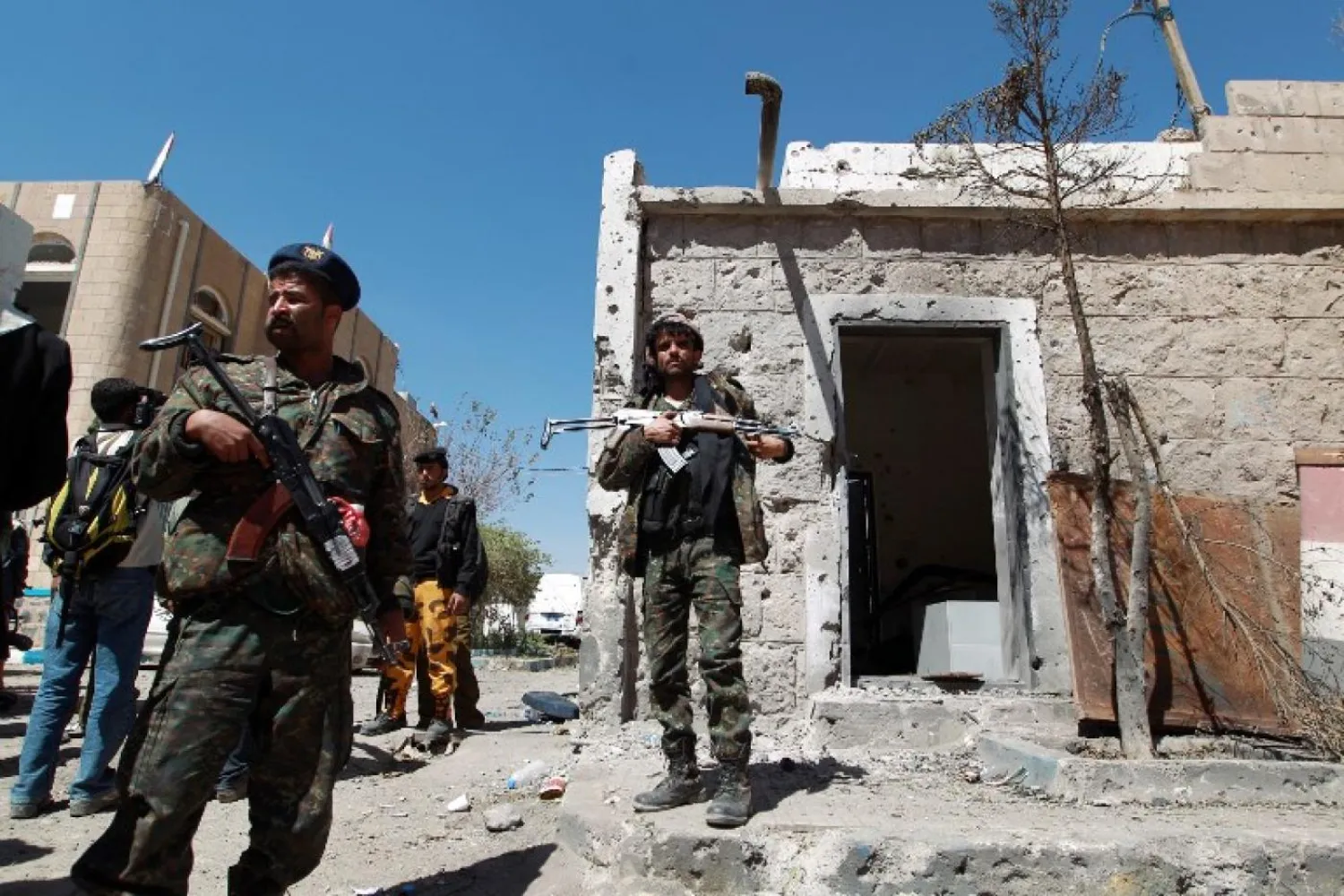Houthis' violations of human rights had escalated this year in Sanaa and other areas under their control, confirmed security and human rights sources in Sanaa.
They said militias committed about 18,000 violations over the past six months, basing their information on reports from state facilities.
The violations varied between killings, kidnappings, house raids, confiscation of properties, and arbitrary arrests at the checkpoints deployed in streets and roads between the provinces.
Human rights organizations expressed their deep concern over the Houthi escalation against civilians and innocent people, especially women and children.
They asserted that such actions oppose human rights and constitute a flagrant violation of international conventions and laws, as well as the customs and traditions of the Yemeni society.
Sam Organization for Rights and Liberties issued last week a report documenting violations of arbitrary detention and psychological and physical torture of women in Yemen.
The organization said Houthis had formed a women's security apparatus, tasked with breaking into homes, arresting, and luring women in order to gather information.
President of SAM Organization Tawfiq al-Humaidi indicated that while women hold a special status in Yemen, they lost that with Houthis’ control over Sanaa and other cities and are being subjected to gross violations of human rights, norms, and values.
The report pointed out that women detentions included deserted places - used for interrogation and psychological torture, homes of citizens who were forced to leave, and police departments controlled by Houthis.
Female detainees were subjected to severe torture and cruel treatment, prompting them to try to commit suicide.
The report contained testimonies of victims, their relatives, and eyewitnesses who have spoken of serious violations in Houthi militias prisons, including police and military prisons.
The coup militias fabricate charges and evidence such as pictures and videos during the abduction period in secret prisons before being transferred to public prisons for torture and extortion.
Yemen’s Organization for Combating Human Trafficking (YOCHT) asserted that 120 women from Sanaa were arrested, most of which were detained in the criminal investigation facilities in Sanaa. The organization based its accusations on reports it received from within the Yemeni capital.
The actual number of Houthi violations against women in their areas of control is much more than the declared figures because most Yemeni families refrain from reporting any violation so that they are not slandered, according to the head of The Association of Yemeni Abductee Mothers Amat al-Salam al-Haj.
Haj told Asharq Al-Awsat that the number of kidnappings and imprisonment of women and children escalated this year, accusing Houthis of systematically and physically torturing women, defaming many of them, and accusing them of unethical charges contrary to Yemeni custom and traditions.
Houthi militias arrested hundreds through its secret security force, known as “preventative security”, including leaders of the Popular Congress Party and a number of figures affiliated with the group in Sanaa, Dhamar, and Ibb on charges of “treason and treachery”, according to human rights sources.
The sources added that militias are raiding homes of activists, lawyers and journalists for not attending or reporting their events, celebrations and rallies. The group even arrested a number of officers and police officials in Sanaa.









